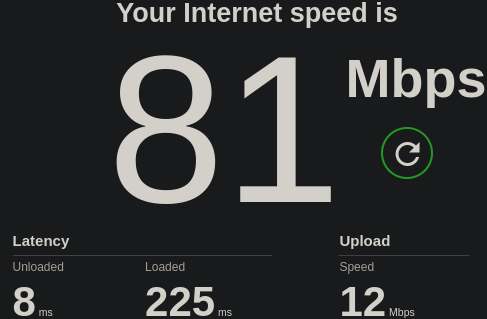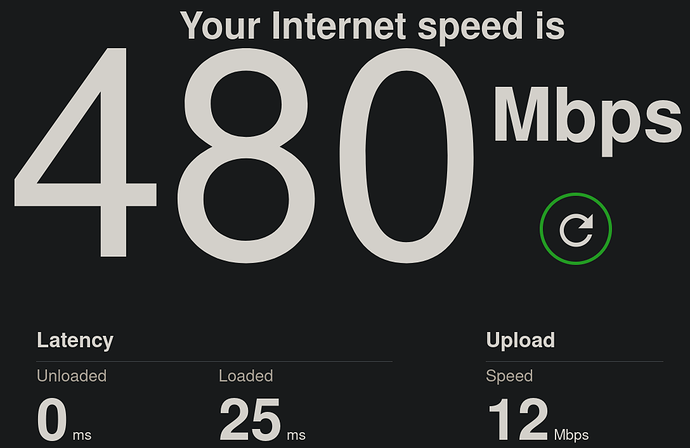Does the ethernet port work in general? Did you reboot your laptop?
Yes, ethernet port works when I link it to router. I believe I did reboot the laptop but not every time.
What about the system LED, how does it behave when you plug in the switch?
The LED on the router side is working when I plug the switch to it.
He asked for the system LED of the switch. When you power the switch on, what does it do?
Regarding to the router <-> switch connection. At the same time you're unable connect your laptop to the switch? Do you specify a static ip on the ethernet connection?
yes; it should go off and then start blinking. if it never blinks then OpenWrt doesn't boot at all and you need serial to recover.
![]()
Some very serious confusion is starting here ... Looking at this patch and comparing with this documentation you will need an additional gigamanic-super-duper-interrupt-bridge-device for the RTL930X.
Or simply convert timer interrupts to 7 & 8 as mentioned in the DT documentation of my timer commit.
Sysupgrading to a recent snapshot resolved my connectivity issues. Sorry I did not test on the older version further.
I have encountered a new issue on the GS308T: I am experiencing high download latency >700ms and low Mbps (only ~70-90Mbps out of my plan's 500Mbps) when speed testing through the switch. When connecting directly to my modem or router, the speed test results are >450Mbps and <50ms latency.
You need to provide a bit more information. Please post the network and firewall configurations of the switch (without sensitive information of course). A small connection diagram would be helpful, too.
Thank you everyone! I redid all the cycles by reseting/rebooting, plug/unplug, and trial and error. FInally I can shh to 192.168.1.1. But I am not sure what really happened.
I almost gave up. Your kindness and help encourage me to keep trying. really appreciate it.
Are you using your switch as a router? That poor MIPS SoC wasn't designed to handle that. Your Realtek switch can switch 1 Gbps without breaking a sweat. But it was never designed for routing. Don't do that please...
I just uploaded a branch with some code I have been experimenting with on my HPE 1920-48G: https://github.com/janh/openwrt/tree/hpe-1920-48g
One big issue with this device is that it hangs in prom_init_cmdline. When I remove that function, it boots fine. I'm not sure what is going on here (but I assume it has to do with the bootloader not actually passing any arguments to the kernel).
Aside from that, this branch also contains a few more general changes that should be useful for other devices. This includes changes to reduce logging and also a cond_resched call in rtl83xx_port_fdb_dump, as that can actually block for more than a second even without printing any log messages.
There is also some unfinished code to get the RTL8214FC working on RTL8393. It doesn't do any PHY patching at this point, as that seems to work quite different from RTL838x, and a separate firmware file would be needed. Other than TX disable not working, I didn't notice any missing functionality though.
My network is quite simple: modem > router (192.168.1.1) > switch (192.168.1.2) > pc. I also have a pi-hole (192.168.1.111) connected to my router for DNS.
All of my configs are very close to default. I only changed the switch, gateway, and DNS IP. Firewall config is untouched.
/etc/config/network
config interface 'loopback'
option device 'lo'
option proto 'static'
option ipaddr '127.0.0.1'
option netmask '255.0.0.0'
config globals 'globals'
option ula_prefix 'xxx'
config device 'switch'
option name 'switch'
option type 'bridge'
option macaddr 'xxx'
config bridge-vlan 'lan_vlan'
option device 'switch'
option vlan '1'
option ports 'lan1 lan2 lan3 lan4 lan5 lan6 lan7 lan8'
config device
option name 'switch.1'
option macaddr 'xxx'
config interface 'lan'
option device 'switch.1'
option proto 'static'
option netmask '255.255.255.0'
option ip6assign '60'
option ipaddr '192.168.1.2'
option dns '192.168.1.111'
option gateway '192.168.1.1'
etc/config/firewall
config defaults
option syn_flood 1
option input ACCEPT
option output ACCEPT
option forward REJECT
# Uncomment this line to disable ipv6 rules
# option disable_ipv6 1
config zone
option name lan
list network 'lan'
option input ACCEPT
option output ACCEPT
option forward ACCEPT
config zone
option name wan
list network 'wan'
list network 'wan6'
option input REJECT
option output ACCEPT
option forward REJECT
option masq 1
option mtu_fix 1
config forwarding
option src lan
option dest wan
# We need to accept udp packets on port 68,
# see https://dev.openwrt.org/ticket/4108
config rule
option name Allow-DHCP-Renew
option src wan
option proto udp
option dest_port 68
option target ACCEPT
option family ipv4
# Allow IPv4 ping
config rule
option name Allow-Ping
option src wan
option proto icmp
option icmp_type echo-request
option family ipv4
option target ACCEPT
config rule
option name Allow-IGMP
option src wan
option proto igmp
option family ipv4
option target ACCEPT
# Allow DHCPv6 replies
# see https://github.com/openwrt/openwrt/issues/5066
config rule
option name Allow-DHCPv6
option src wan
option proto udp
option dest_port 546
option family ipv6
option target ACCEPT
config rule
option name Allow-MLD
option src wan
option proto icmp
option src_ip xxx::/10
list icmp_type '130/0'
list icmp_type '131/0'
list icmp_type '132/0'
list icmp_type '143/0'
option family ipv6
option target ACCEPT
# Allow essential incoming IPv6 ICMP traffic
config rule
option name Allow-ICMPv6-Input
option src wan
option proto icmp
list icmp_type echo-request
list icmp_type echo-reply
list icmp_type destination-unreachable
list icmp_type packet-too-big
list icmp_type time-exceeded
list icmp_type bad-header
list icmp_type unknown-header-type
list icmp_type router-solicitation
list icmp_type neighbour-solicitation
list icmp_type router-advertisement
list icmp_type neighbour-advertisement
option limit 1000/sec
option family ipv6
option target ACCEPT
# Allow essential forwarded IPv6 ICMP traffic
config rule
option name Allow-ICMPv6-Forward
option src wan
option dest *
option proto icmp
list icmp_type echo-request
list icmp_type echo-reply
list icmp_type destination-unreachable
list icmp_type packet-too-big
list icmp_type time-exceeded
list icmp_type bad-header
list icmp_type unknown-header-type
option limit 1000/sec
option family ipv6
option target ACCEPT
config rule
option name Allow-IPSec-ESP
option src wan
option dest lan
option proto esp
option target ACCEPT
config rule
option name Allow-ISAKMP
option src wan
option dest lan
option dest_port 500
option proto udp
option target ACCEPT
Are you using your switch as a router? ... But it was never designed for routing. Don't do that please...
No. Please see my above reply.
Disabling the firewall will spare you a few CPU cycles, and you don't need it on a switch. Nothing in dmesg or logread?
I have a suspicion. Run this on your switch and post the output.
for i in $(seq 1 8); do echo lan$i |tr -d '\n'; ethtool lan$i|grep 'Link detected'|tr -d '\n'; ethtool lan$i|grep 'Speed'; done
That makes sense. I disabled the firewall. No change.
I don't see any errors in dmesg or logread.
[175747.710000] RTL8380 Link change: status: 1, ports 400
[175748.310000] rtl83xx-switch switch@1b000000 lan3: Link is Up - 1Gbps/Full - flow control rx/tx
[175748.320000] switch: port 3(lan3) entered blocking state
[175748.320000] switch: port 3(lan3) entered forwarding state
edit: added speed test screenshot

lan1 Link detected: yes Speed: 1000Mb/s
lan2 Link detected: no Speed: Unknown!
lan3 Link detected: yes Speed: 1000Mb/s
lan4 Link detected: no Speed: Unknown!
lan5 Link detected: no Speed: Unknown!
lan6 Link detected: no Speed: Unknown!
lan7 Link detected: no Speed: Unknown!
lan8 Link detected: no Speed: Unknown!
Ok, not what I'd expected to see. Anyway, your router, what make and model is it?
You could try this: for i in $(seq 1 8); do ethtool -A lan$i autoneg off rx off tx off; done
It's an Asus RT-AC68U. I'm aware that it doesn't support VLANs. And I plan to replace it with an x86 pc running opnsense. I am testing OpenWrt on the switch before committing to migrating from my current router in hopes of avoiding long downtime.
output:
autoneg unmodified, ignoring
rx unmodified, ignoring
tx unmodified, ignoring
no pause parameters changed, aborting
autoneg unmodified, ignoring
rx unmodified, ignoring
tx unmodified, ignoring
no pause parameters changed, aborting
autoneg unmodified, ignoring
rx unmodified, ignoring
tx unmodified, ignoring
no pause parameters changed, aborting
autoneg unmodified, ignoring
rx unmodified, ignoring
tx unmodified, ignoring
no pause parameters changed, aborting
autoneg unmodified, ignoring
rx unmodified, ignoring
tx unmodified, ignoring
no pause parameters changed, aborting
autoneg unmodified, ignoring
rx unmodified, ignoring
tx unmodified, ignoring
no pause parameters changed, aborting
autoneg unmodified, ignoring
rx unmodified, ignoring
tx unmodified, ignoring
no pause parameters changed, aborting
autoneg unmodified, ignoring
rx unmodified, ignoring
tx unmodified, ignoring
no pause parameters changed, aborting
